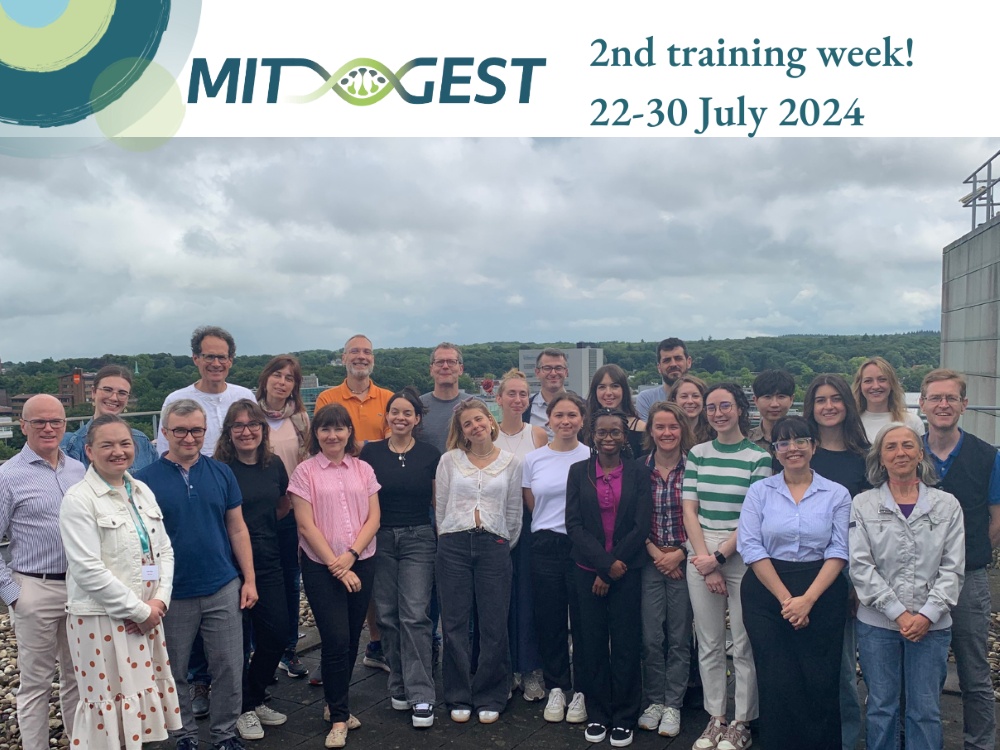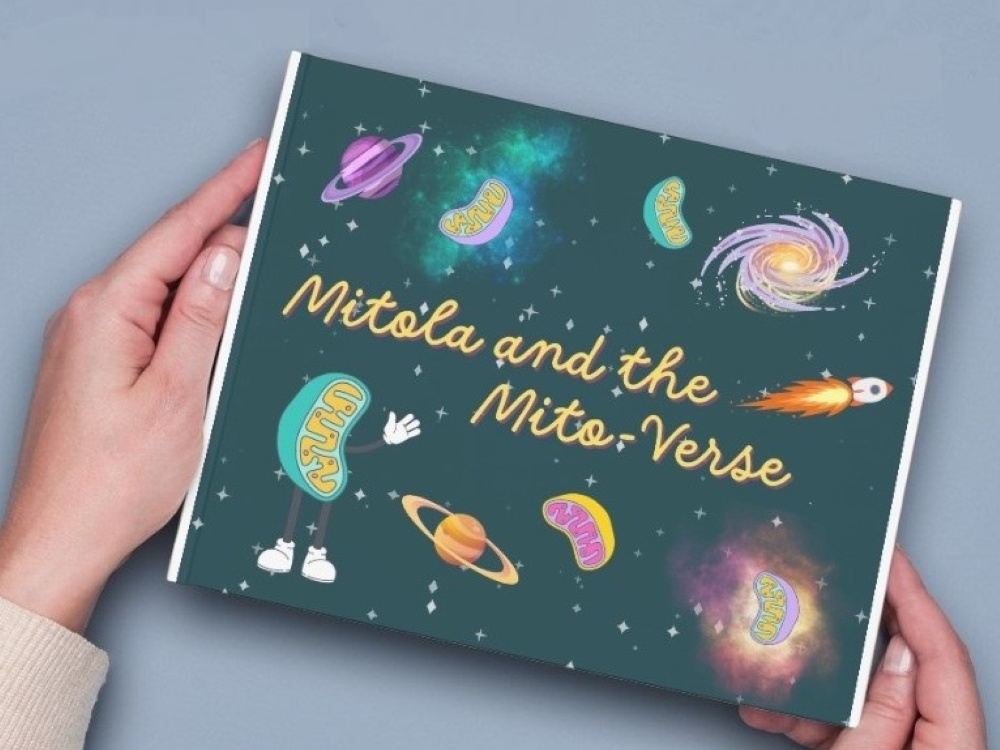What is MITGEST?
MITGEST is an EU-funded project that aims to lead the way in understanding and treating mitochondrial disease through cutting-edge research and innovation. As part of the initiative, PhD students and post-doctoral researchers are collaborating with leading academic experts on a range of studies that focus on mitochondrial function and mitochondrial dysfunction, as well as the ongoing search for treatments.
The week-long training event, held in the Netherlands, featured a variety of scientific and non-scientific workshops and presentations designed to increase skills and knowledge in the field of mitochondrial research. Among the presentations was a standout session by Maria, The Lily Foundation’s Research Manager, and Katie, the charity’s Patient Engagement & Advocacy Manager.
‘Nothing about me, without me’: the power of patient voices
The presentation, entitled ‘Nothing about me, without me’, emphasised the critical role that patient organisations like The Lily Foundation play in directing research into mitochondrial disease. Katie and Maria discussed the foundation's support services and advocacy work, explaining how patient involvement can help shape research in meaningful ways.
They highlighted that lived experiences of mitochondrial disease provide unique insights that can’t be replicated in a science lab. Sharing details about research projects The Lily Foundation are currently funding, they underscored the importance of improving mitochondrial disease diagnosis and the search for effective treatments that could improve patients’ quality of life.
Shaping the future of mitochondrial research
While the PhD students and post-doctoral candidates in attendance are at the beginning of their careers, they will one day become leaders in the field of mitochondrial research. The opportunity to influence how they view patient involvement in research is significant.
One attendee described the presentation as “not only informative but also eye-opening, offering invaluable insights into the perspective of mitochondrial patients.” Another student was deeply moved, saying that Maria and Katie’s talk made her realise “the immense importance of our work” and further motivated her to dedicate herself to research into mitochondrial disease treatments.
The comic twist: mitochondrial disease explained in a fun way
As the event progressed, Maria and Katie were treated to a sneak peek at an exciting new project: a comic book designed collectively by the doctoral candidates. The goal of the comic is to explain in a simple, fun and accessible way how mitochondria work and what mitochondrial disorders are. This resource could help patients, families and the general public to better understand the disease.
Thrilled to be involved in such a creative project, Katie and Maria gladly offered their feedback on the comic, which has since been updated. However, we’d love to hear from you as well! Please take a look and let us know your thoughts. Does the comic help explain mitochondrial disease in simple terms? Would you or a family member have appreciated access to a resource like this when first diagnosed?
Please share your thoughts by emailing [email protected]. Your feedback could help improve this unique tool and make it more useful for the mito community.
The comic was created by Eve Harding and Francesca Tavolaro. You can read an interview with them, where they discuss with MITGEST their experiences of developing the comic and what they’ve learned from the creative process.


